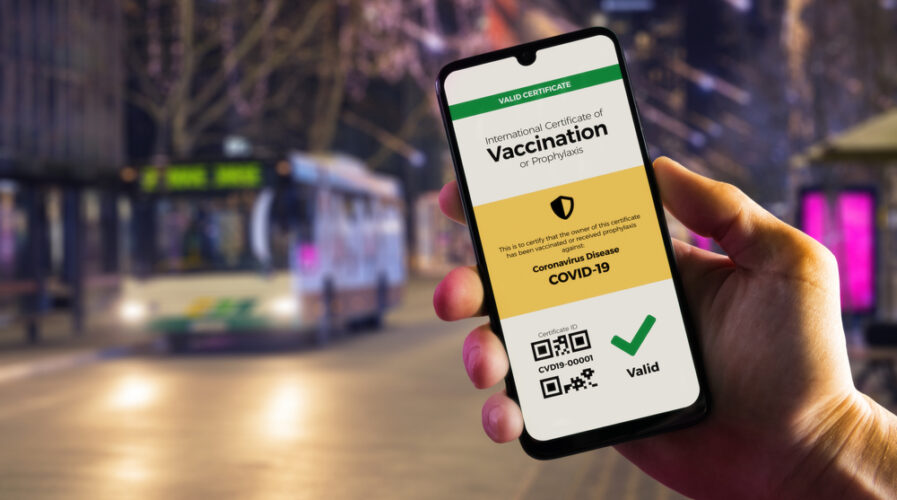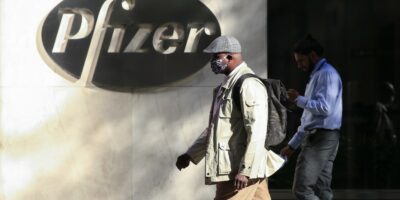
Microsoft & Oracle joins new digital vaccine passport coalition. Source: Shutterstock
Microsoft, Oracle join to create digital vaccine passport
- Vaccines aren’t quite enough for society to reopen – we need evidence that they’ve been administered
- This is the basis of efforts to create ‘vaccine passports’ that provide a digital certificate of immunization
- We look into the new coalition of some of the biggest healthcare and technology organizations creating them
Now that many countries beginning to overcome the logistics hurdle of Covid-19 vaccine distribution and, in stages, have begun the process of vaccinating their citizens, the focus will soon shift to ‘vaccine passports’ – that provide evidence that individuals are vaccinated.
These credentials could serve as a crucial means for society, industries, and borders to reopen.
A group called the Vaccine Credential Initiative, made up of some of the United States’ biggest tech firms and health care organizations, have joined together to ensure that everyone has access to a secure, digital record of their Covid-19 vaccination — that can be stored in individual smartphones. According to CNN, the records could be used for everything from airline travel to entering concert venues.
The coalition comprises Microsoft, Salesforce, Oracle, Cerner, Cigna’s Evernorth, health care software firm Epic and the Mayo Clinic, among others. The aim of the Vaccine Credential Initiative is to create an open-source, standard model for how hospitals, pharmacies, and clinics administering Covid-19 vaccines make digital records of immunizations, which can be provided to patients who want them.
Traditionally, immunizations are tracked through written records or even patient’s electronic medical records. However, the scale of the pandemic’s requires a different system. It needs to be more easily accessible and portable, in order for people to use them to access schools, offices, and event venues.
Reports also suggest that those digital records need to be “interoperable”, meaning all organizations administering the shots should use the same model for recording vaccine credentials. Most importantly, the vaccination record also needs to be verifiable and secure to avoid fakes.
“This process needs to be as easy as online banking,” Oracle’s Global Business Units executive vice president Mike Sicilia said. The digital vaccine passport also has to be reachable and accessible among underserved populations.
The passport will likely take the form of an electronic document in an app, with the possibility of generating a hard copy with a QR code for verification, that would prove that the holder has been immunized against Covid-19.
Immunization details could then stored in digital wallets, like those found on Apple and Android devices.
A report by Forbes said that “the idea is to leverage enough leadership to create a global digital registry that is reliable, traceable, verifiable and that will allow us to return safely to work, school, events, and travel.”


